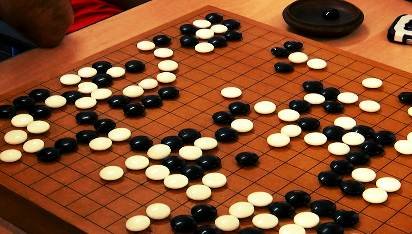Board games have been a source of entertainment and social interaction for centuries. From traditional classics like Monopoly and Scrabble to modern titles like Catan and Pandemic, board games continue to captivate people of all ages. In this article, we will explore the world of board games, their benefits, different types, tips for choosing the right game, creating memorable experiences, overcoming challenges, and the future of this popular form of entertainment.

Contents
Introduction
Board games are tabletop games that involve counters or pieces moved or placed on a pre-marked surface or “board.” These games often incorporate elements of strategy, chance, and competition. Over the years, board games have gained immense popularity, becoming a staple in family gatherings, social events, and even professional gaming tournaments.
Benefits of playing board games
Playing board games goes beyond mere entertainment; it offers several benefits to players, regardless of their age. These games provide an avenue for cognitive development, enhancing critical thinking, problem-solving, and decision-making skills. By engaging in strategic gameplay, players learn to analyze situations, anticipate outcomes, and develop effective tactics.
Additionally, board games foster social interaction and improve communication skills. They bring people together, encouraging face-to-face engagement and the building of connections. Whether it’s negotiating trades in a trading game or coordinating strategies in a cooperative game, board games provide a platform for social bonding and teamwork.
Furthermore, playing board games can serve as a means of stress relief and relaxation. They offer a break from the digital world and allow individuals to disconnect from screens, promoting a healthier balance between online and offline activities. The immersive nature of board games creates a focused environment where players can unwind and enjoy the company of friends and family.
Different types of board games
Board games come in various types, each offering unique experiences and gameplay mechanics. Understanding the different types can help players find the games that align with their preferences and interests.
- Strategy board games: These games emphasize long-term planning, decision-making, and resource management. Examples include Settlers of Catan, Risk, and Chess.
- Cooperative board games: In cooperative games, players work together as a team to achieve a common goal. Games like Pandemic and Forbidden Island require collaboration, communication, and coordination.
- Party board games: Designed for larger groups, party games focus on laughter, entertainment, and creating a lively atmosphere. These games often involve quick rounds, trivia questions, or humorous challenges. Examples include Cards Against Humanity, Pictionary, and Taboo.
- Educational board games: These games combine learning and entertainment, making them an excellent choice for educational purposes or family-friendly fun. Educational board games cover a wide range of subjects, from history and science to language and mathematics. Some popular educational board games include Scrabble, Ticket to Ride: Europe, and Codenames.
How to choose a board game
With countless options available, selecting the right board game can seem daunting. Here are some factors to consider when choosing a board game:
- Age and player count: Consider the age range of the players and the number of participants. Some games are designed specifically for children, while others cater to a broader audience. Additionally, check the recommended player count to ensure everyone can actively participate.
- Theme and gameplay preferences: Board games cover a wide range of themes, such as fantasy, history, science fiction, or mystery. Choose a theme that resonates with the players’ interests. Additionally, consider the gameplay mechanics—whether they prefer strategy, deduction, or party-style games.
- Complexity and duration: Evaluate the complexity level of the game rules and mechanics. Beginners may prefer simpler games with straightforward instructions, while experienced players might enjoy more intricate gameplay. Also, consider the duration of the game. Some games can be played in under 30 minutes, while others may last several hours.
Tips for getting started with board games
- If you’re new to the world of board games, these tips will help you get started:
- Research and read reviews: Before purchasing a board game, read reviews and watch gameplay videos to get a sense of its mechanics and player experiences. Websites, forums, and online communities dedicated to board games can provide valuable insights.
- Start with beginner-friendly games: Begin with games specifically designed for beginners. These games often have simpler rules, shorter playtimes, and intuitive gameplay. They serve as an excellent introduction to the world of board gaming.
- Join local gaming groups: Seek out local gaming groups or board game cafes in your area. Participating in game nights or events will allow you to try different games, meet fellow enthusiasts, and learn from experienced players.
Creating a memorable board game experience
To make your board game sessions enjoyable and memorable, consider the following tips:
- Setting the mood and ambiance: Create a comfortable and inviting gaming space. Dim the lights, play background music that matches the game’s theme, and gather snacks and beverages to enhance the overall experience.
- Establishing clear rules and guidelines: Before starting a game, ensure that all players understand the rules and gameplay mechanics. Clear communication and providing examples or demonstrations can help avoid confusion during gameplay.
- Encouraging healthy competition and sportsmanship: While competition is a natural element of board games, it’s essential to foster a friendly and supportive atmosphere. Encourage players to congratulate each other’s successes and remain gracious in defeat.





